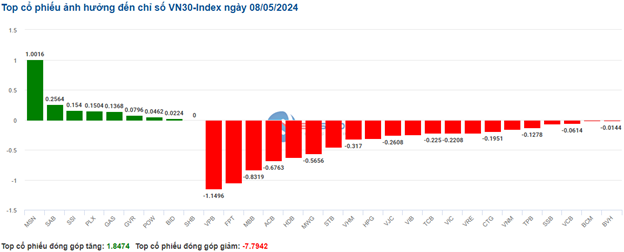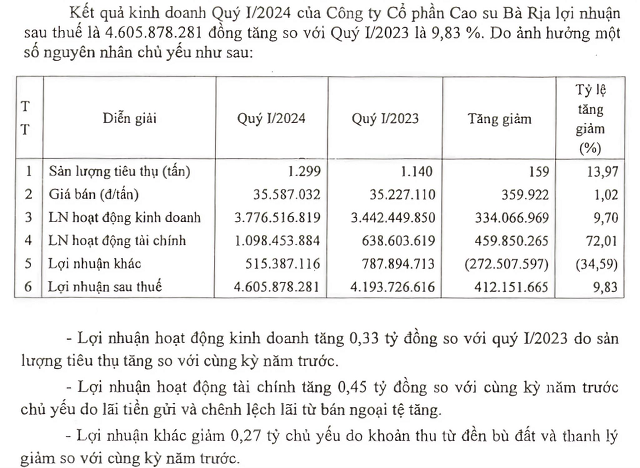Commercial banks have been recently seen increasing interest rates on different terms, while a few others plan on hiking savings deposit interest rates after the 30th April and 1st May holidays. This increase is mainly driven by inflationary pressure, gold price fluctuation, and the continuing volatility of the USD/VND exchange rate.
Interest rates yet to reverse
In April 2024, several commercial banks, such as Eximbank, HDBank, VPBank, NCB, Kienlongbank, VietinBank, and BVBank increased deposit interest rates by 0.1-0.35%. The Deputy Director of a joint-stock commercial bank stated that the bank has not raised deposit interest rates yet but has considered options to adjust them in the near future if gold prices and exchange rates continue to rise.
“The increase in interest rates for deposits is to make savings more appealing after a period of lows. However, this is not a general trend and is unlikely to impact lending interest rates,” he remarked.
The latest statistics from the State Bank of Vietnam show that the average deposit interest rate for newly issued transactions is at 3.02% per annum, which is a 0.5 percentage point decrease compared to the end of last year. The average lending interest rate for newly issued transactions is at 6.5% per annum, a 0.6 percentage point decrease.

Many commercial banks continue to promote credit programs and packages with low interest rates to support people and businesses. Photo: HOANG TRIEU
Mr. Dinh Quang Hinh, Head of the Macroeconomy and Market Strategy Department, VNDIRECT Securities Company Analysis, believes that the slowdown in deposit interest rate reduction recently is due to the increase in exchange rates and the return of inflationary pressure. Despite this, the demand for credit is still weak, which has not put pressure on deposit and lending interest rates. As of late April 2024, the credit of the banking system had increased by 1.5%, which is better than the negative growth in the first two months of the year, but still lower than the same period last year.
Mr. Michael Kokalari, Director of the Macroeconomic Analysis and Market Research Department of VinaCapital, commented that the period of deposit interest rate decrease that began in March 2023 has ended, as some banks have recently increased savings interest rates. The expert believes that deposit interest rates need to increase by another 0.5-1 percentage point by the end of this year to curb the flow of idle money into gold and foreign currency.
According to Mr. Dinh Quang Hinh, the deposit interest rate may already have reached its bottom but will not increase sharply anytime soon, at least for the next few months, due to the economy just recovering and the growth of credit being moderate. “Banks still have room to further reduce lending interest rates, although it may not be significant, due to lower capital costs after the reduction of deposit interest rates from late 2023 to early this year,” he analyzed.
Numerous capital solutions for businesses
In the context of deposit interest rates gradually increasing, experts believe that the banking industry is working to promote credit growth in production and business to support businesses and the economy.
In fact, commercial banks have continuously implemented numerous preferential credit programs and packages since the beginning of the year. Currently, the short-term lending interest rate of some credit packages is as low as 2.5%-3% per annum, while medium- and long-term lending is at 5%-6% per annum, which is lower than the capital input cost of commercial banks.
Mr. Cao Thanh Phong, Deputy Director in charge of the Ho Chi Minh City Credit Approval Center of Agribank, said that the average lending interest rate of the bank in March was only 7.47% per annum, with short-term lending interest rates from 5% per annum and medium- and long-term lending interest rates from 6% per annum.
“Lending interest rate for some priority sectors and industries is fixed at 4% per annum. We are running a program to support businesses in the import-export sector with interest rates of only 2.6%-3% per annum. We have just reviewed all loan application records of the system to continue simplifying and supporting businesses with convenient access to capital,” Mr. Phong emphasized.
A representative of LPBank said that the bank has launched a program called “Interest Rate Promotion – Opening Trade Gateways,” which offers preferential loan interest rate solutions for import-export businesses, with a total limit of up to 5,000 billion VND; USD lending interest rates from as low as 4% per annum and preferential VND lending interest rates from 6.15% per annum. Customers will be applied a fixed interest rate throughout the loan term, up to 12 months.
In addition to interest rates, banks also implement various solutions to accompany businesses in accessing capital. Ms. Nguyen Thi Kim Phuong, Deputy Director of BIDV’s Corporate Customer Department, said that with technical support from the Asian Development Bank (ADB), BIDV has built and implemented SMEasy. This digital platform offers many support solutions for small and medium-sized enterprises, such as online training, providing support channels for businesses to transform digitally, connect businesses, and advertise products.
“We also continuously seek low-cost, preferential capital sources from reputable international organizations to support small and medium-sized enterprises in enhancing their financial capacity and developing more sustainably,” Ms. Phuong informed.
According to experts, the effort to transform digitally to promote B2B (business-to-business) payment will help businesses reduce costs and increase competitiveness. Mr. Gareth Parrington – Senior Director of Southeast Asia, Corporate Payment and Remittance Solutions at VISA – believes that modernizing payment solutions will open up new prospects for banks to approach and support businesses promptly.
Proposal to extend debt extension for businesses
In the context of many businesses still facing difficulties and credit demand being below expectations, the State Bank of Vietnam said it is reviewing, assessing, and proposing to the Government to consider extending the implementation time of Circular 02/2022/TT-NHNN on debt rescheduling, maintaining debt groups.
Permanent Deputy Governor of the State Bank of Vietnam Dao Minh Tu said that the liquidity of credit institutions is very abundant. If businesses have effective projects that meet minimum credit conditions, they will be granted loans. The credit growth target for this year is 15%, and the State Bank of Vietnam has assigned the entire quota to banks from the beginning of the year. If necessary and macroeconomic indicators permit, this limit may be increased.
“Lending interest rates are currently at their lowest in decades, especially for new loans. The State Bank of Vietnam has not raised the current policy interest rates and encourages credit institutions to reduce lending interest rates, especially in priority areas. We also direct commercial banks to apply technology to reduce costs for businesses and promote connectivity to boost credit growth,” Mr. Dao Minh Tu emphasized.







































